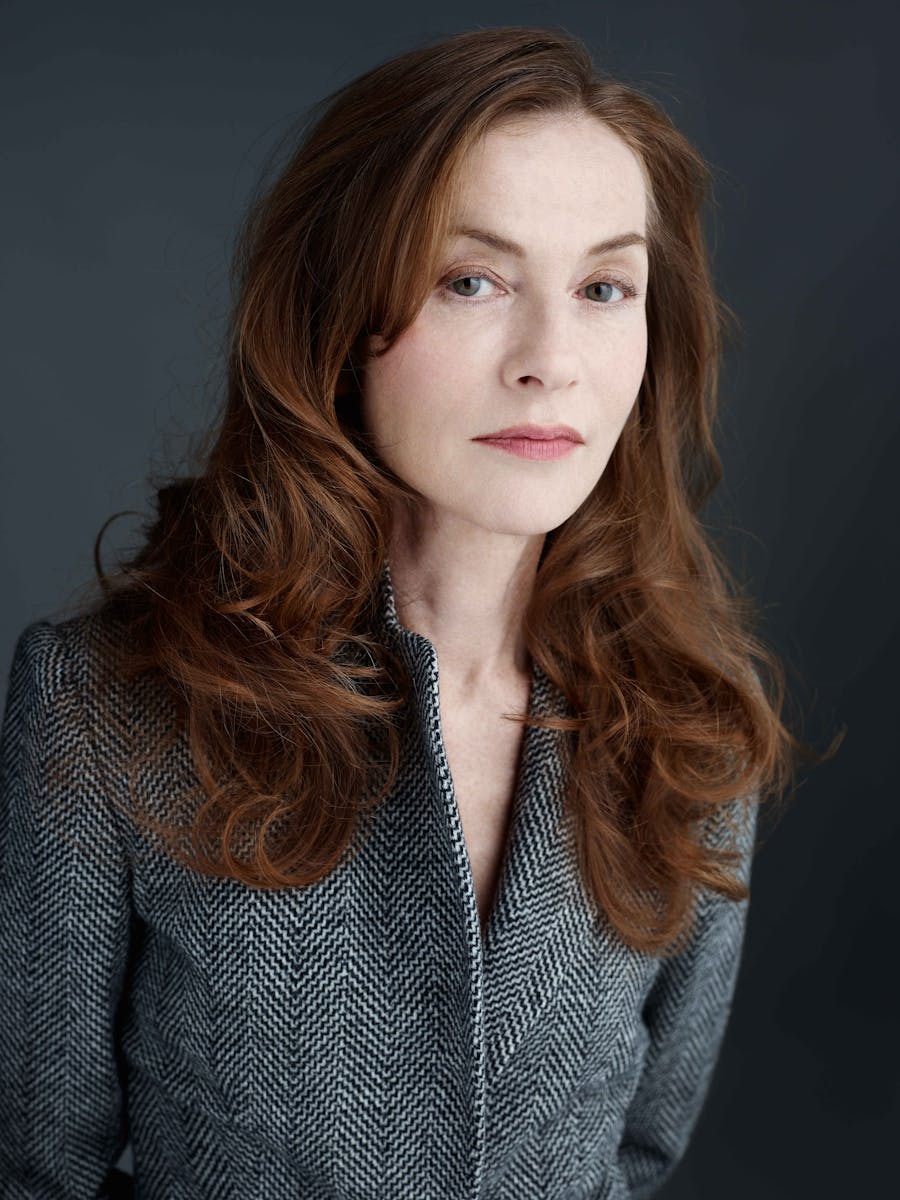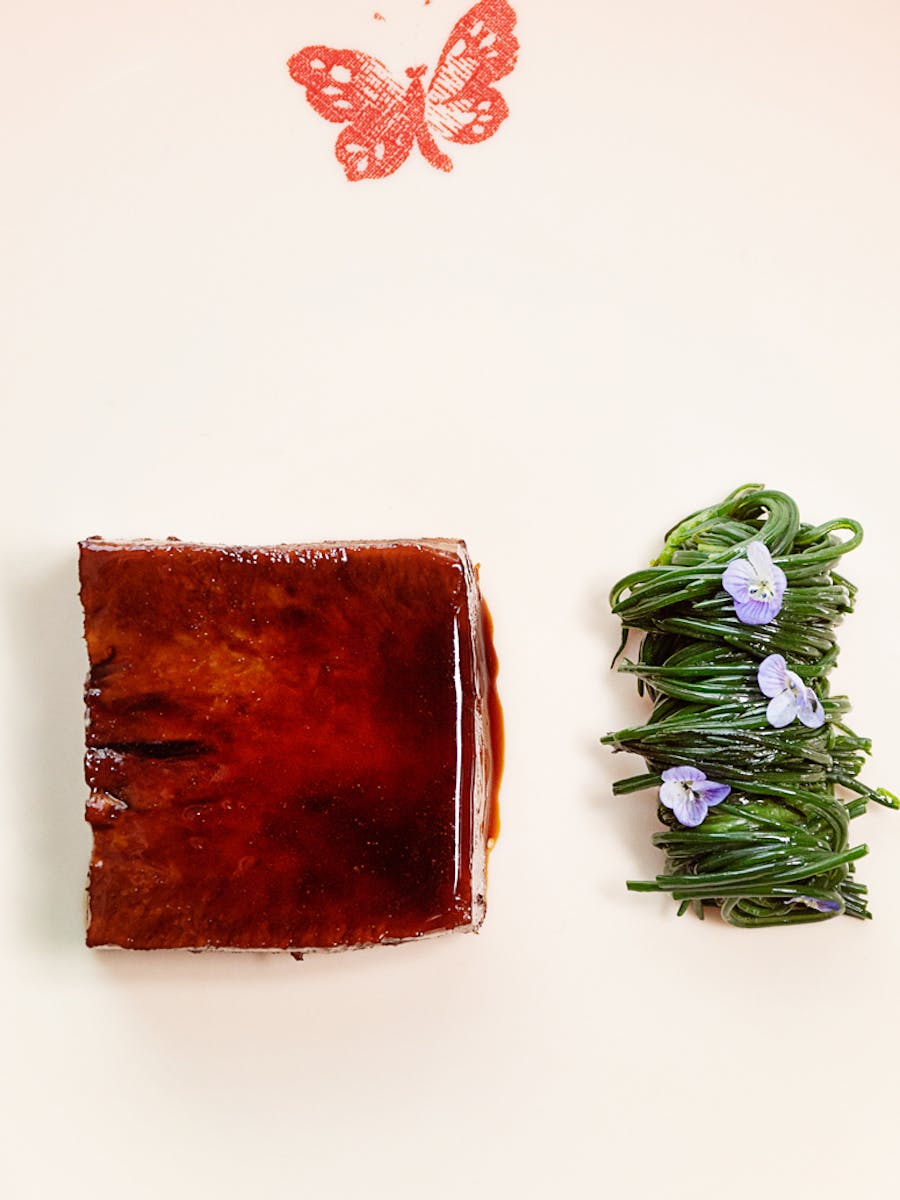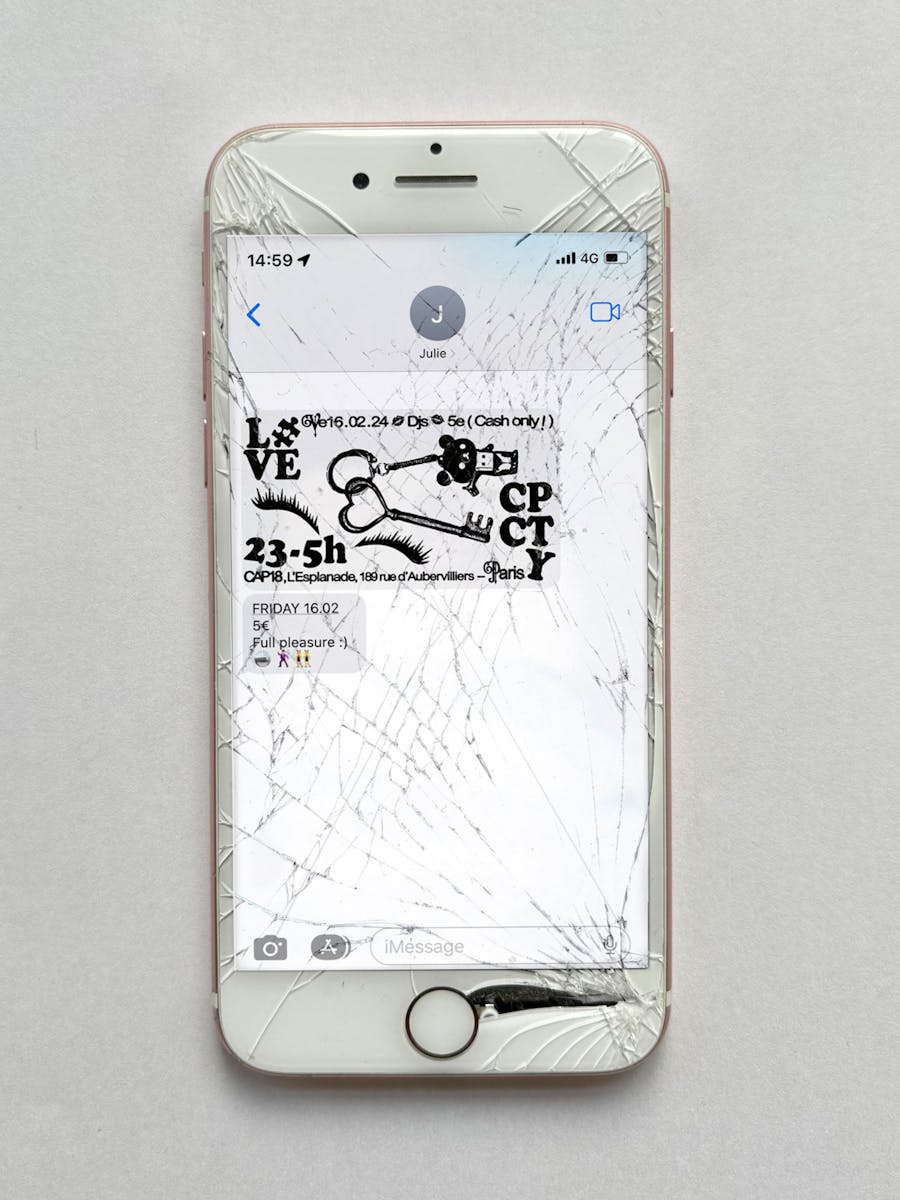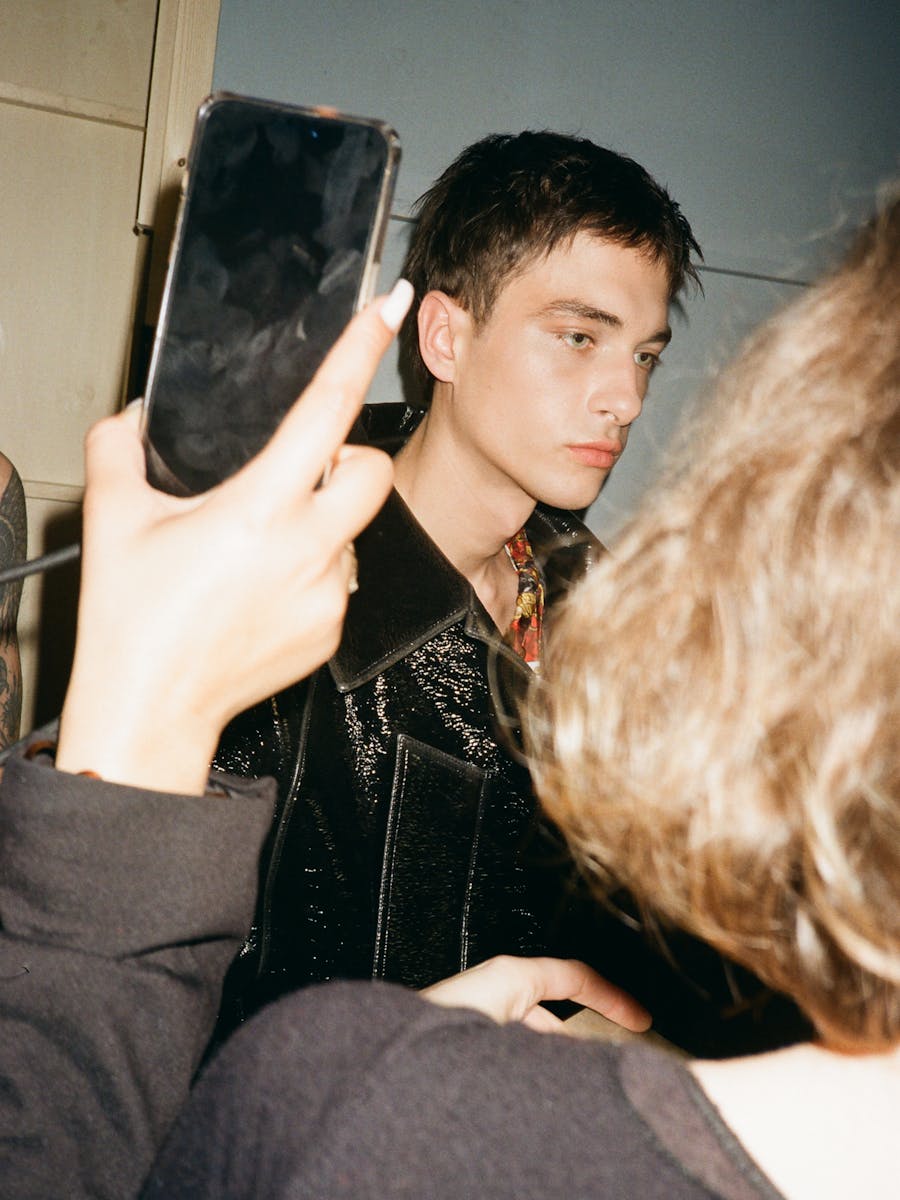PARFUMS DE FEMME
Serge Lutens is thin, dressed, as always, in black, intense and shy. He smiles, not disarmingly, as he searches for the right word, for not double but triple meanings, or for the only possible path for his life. Serge Lutens rarely opens up. That’s fortunate, because the man is like a trap : you listen to him and you follow, fascinated by his lonely journey through a life dedicated to extolling women. In the end, you don’t want to leave him. His creations seem to flow naturally. Serge confirms, “ I don’t search, I discover.” Then he smiles, “Then I refine and refine.” Serge Lutens’s discoveries since the early 60’s have become historic landmarks in women’s beauty and women’s lives. “In this woman’s life,” Serge insists. He hates when you talk about women. That says it all. For him, it’s “this woman”, his own double, whom he reinvents in every photograph, dress, makeup design, or perfume.
We’re at the Palais Royal, where all is ancient and eternal (except for the new and temporary Comédie Française theater!). Serge Lutens welcomes us into his world of light and shadow, and beauty. The perfumes, the décor, the black upon black, the soft voice and precise words… “I am not a perfectionist, I am a consummate-tionist” We’re seated around an oriental table with his beautiful collaborators, all elegantly dressed in black. At the center of the boutique gallery, anchored in the floor, at the heart of the Royal Palace, is a massive spiral stairway that seems to spin into infinity. It takes us up to the first floor. The deep, intimate, violent and artistic relationship Serge Lutens had with his mother was forged in a stairwell in northern France in 1943 under a Nazi bombardment. “There was a warning siren. I can still see my mother’s empty eyes —empty of everything but fear. For me and for herself. We go down to a bomb shelter. I am very small, but the memory is very precise. Everyone squeezes together. And I literally lose my mother. I’m squashed by grownups. At the all-clear, I see myself being jostled and bumped, climbing this interminable rusty staircase, hanging onto the honeycomb-like surface of each step. We found each other, but the terrifying vertigo of the stairway for me is the loss of my mother.
Serge Lutens was wanted by his mother. But she was the only one who wanted him. His father didn’t want her to keep the baby. The grandparents wanted nothing to do with “this woman” for their son. But she stood her ground, despite Serge’s father, despite a new husband, despite Pétain’s laws that targeted women for adultery. A courageous mother, liberated in fact, despite her lowly station in life, despite everything. Serge, though often far from her as he grew up, felt forever one with her. “I invented her so I could exist,” he says. She is the one he photographs, she and he, he photographs, perfumes, dresses, makes up. He, whom his father always more or less intentionally melded with his mother. These fragile beginnings, the solitary path, the double life, he and she, makes him a sort of anti-Lagerfeld. But there are other “inventors” with similar destinies. They are, as it happens, totally innovative creators with whom he feels close: Coco Chanel, of course, but even more Yves Saint Laurent. Like Yves, Lutens “started as a problem”. He went out looking and he almost lost himself (“I wasn’t sleeping. At all.”) but he managed to find himself. “I may have a lucky star shining on me, but basically, I’m the one who turns it on.” By “escaping» being just a man, says Serge, Lutens could make way for The Inventor.
At 14, Lutens was sent off to work at a bourgeois hair salon in northern France. He observes authentic versus fake elegance, learns how to do everything, and how to adapt everything. Like an extension of his arm and his eye, his simple little camera is always with him. His Instamatic would wind up opening some of the very best doors. He comes to Paris in ’62. He’s 20. He brings his photographs to the great Edmonde Charles Roux’s Vogue, at the Place du Palais Bourbon. At Elle, the editors had found his photos were not sharp enough. “Funny, because I knew I had a very sharp eye,” Serge says, smiling. “But Vogue was the right place for me.” They were sensitive people, and the French team had total freedom vis-a-vis the American publisher, though the Americans would soon pull in the reigns. The very young Lutens would be called whenever there was an emergency : a photo, the perfect jewelry to complete a shoot, the Christmas edition going to press in 3 days… Quick, quick, Serge, we need an idea! The man in black would become indispensable.
“Chanel and black, St. Laurent and black, my black, it’s also mourning, you can’t deny it. It’s that, too.” But Lutens would be most successful in black and white. In fact, his use of white would be revolutionary when in 1968, Dior and Marc Bohan decide to “create” make-up, and entrust the invention and development to Serge Lutens. “I stand not for the People, he says, but for Women.” An explosion of colors, white, lots and lots of white, for which he fought. “I stayed true to my convictions about women. And about myself.“ And, as he says, it was a world-wide success for Dior and for him. Travel, luxury, airplanes, Rolls Royces. Later, when he discovered and adopted Morocco, the perfumes would come, with their garland of dangerous names: “De Profondis, Tubereuse criminelle, Vitriol d’oeillet...” A new world invented, or rather discovered by Lutens.
For “this woman”. “My mother’s intelligence was in her silences. She said to me, ‘Now it’s your turn. You must go on without me.’” These days, Serge Lutens writes a lot. And he plans to write more and more. He wants to conquer this new territory. “Like a person who is not quite finished, I am always ready to hop a new train.”
I left Serge Lutens and the Palais Royal reluctantly. But I am grateful to him for having said so much and shown me so much. And I took away some illuminating thoughts. This one in particular: “Beauty is the moment when you finally lift your head up.” Yes… while trying to catch sight of the end of the endless spiral staircase.





